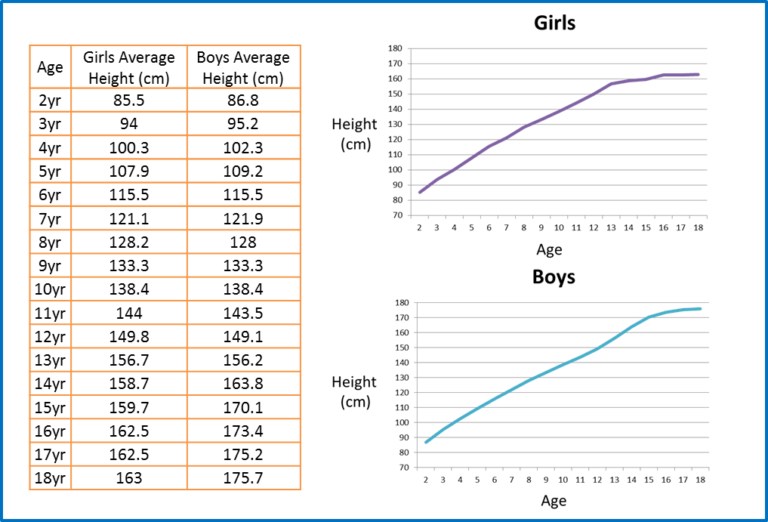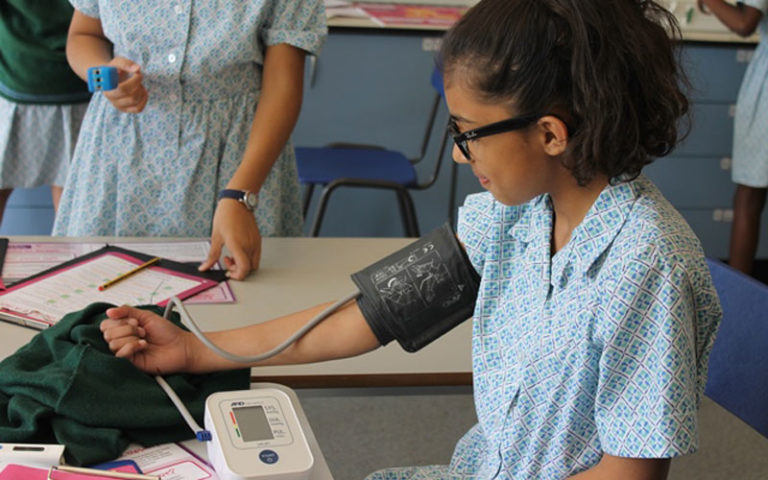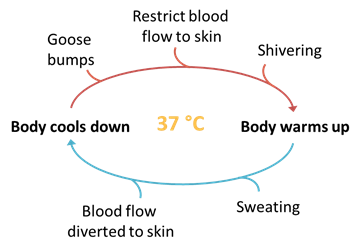Your height is determined by lots of different things. Scientists think that your height is 90% genetic, the genes you got from your parents, but your height is also affected by things like diet and your general health.
The charts here show what the average heights are for girls and boys at different ages. Don’t worry if you’re taller or shorter than average – remember it is only an average! Also, people grow at different speeds and at different times.
Knowing your height is really important for lots of tests that doctors and nurses do.

Heart rate is a measure of how many times your heart beats in a minute.
This can be measured with lots of different equipment – you can even do this yourself by finding your pulse in your wrist and counting how many beats you can feel in a minute (it helps to look at a clock when doing this!).
Most people have a resting heart rate of 60-100 beats per minute (bpm). Low heart rates, below 60bpm, can be due to many things including being very athletic – some athletes have a resting heart rate of 40bpm. Some medicines can slow your heart rate as well.
High heart rates of over 100bpm can happen when you are being very active or getting excited.
Blood pressure is the pressure your blood puts on your arteries when it is pumped round your body by your heart.
Blood pressure is recorded as two numbers, written as a fraction:

We measure this using a blood pressure monitor. The cuff of the monitor is put securely around the arm, just above the elbow. The cuff inflates and does so until it stops blood getting through your arm. It then starts to deflate, and the point where it is deflated just enough for blood to get through the arteries, it is recorded as your systolic blood pressure. The cuff will continue to deflate until blood flow returns to normal which is recorded as your diastolic pressure.
Blood pressure is measured often in adults as it can quickly show a doctor how healthy their patient is.
Normal blood pressure for adults is 120/80 and most people will have a blood pressure very close to this.
A high reading can be because of being very active just before the reading or after having a shock. Low blood pressure can be due to being quite fit and active in everyday life so when resting, it is lower than the average person.

Normal body temperature is 37°C. This can vary during the day by about 0.5°C. A body temperature of 37°C is really important as this is the best temperature for your body to work at. A part of your brain called the hypothalamus works like a thermostat – making your body cool down when it is too hot and heating it up when it is too cold.
Body temperature can be raised a little when exercising or when you are ill. Your temperature can cool down when you’re resting.

When body temperature is significantly higher or lower, this can be really dangerous. A temperature below 35 °C is called hypothermia which is where the body gets so cold it doesn’t function properly any more.
When the body gets really hot, above 40 °C, it causes severe headaches, confusion and exhaustion. This is also caused heat stroke and can normally be fixed by moving somewhere cooler and putting cool water on the skin.

Check out this short video where Tom from Medical Mavericks talks about what happens when you get too hot. This happened to a group of trainee soldiers a few years ago and one of them even died!
We inspire the next generation of medics and scientists by taking real medical and sports science equipment into schools, colleges & events all over the UK.
Company: MedicFest Ltd, trading as Medical Mavericks. Registered in England and Wales. Company Number: 12021679
© 2024 Medical Mavericks. All rights reserved.